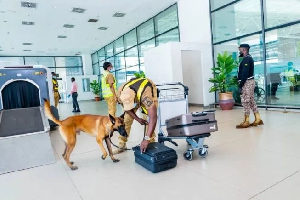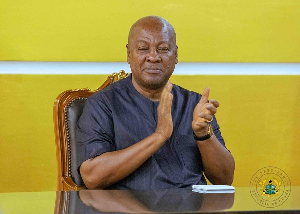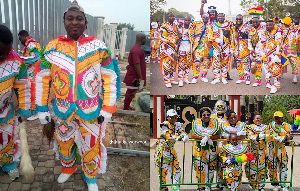Ghana faces a lot of socio-economic problems but the issue of unemployment especially among the youth of this country is hitting its all time high and leaving a lot of youth hopeless and frustrated.
You attend seminars and workshops all over the country and what speaker upon speaker always say to these youth who find themselves at these seminars and workshops is that they are the ‘future of this nation’ but the question is that how can the youth be the future when they cannot even secure simple jobs that will make them responsible people in the so called future?
Research indicates that Ghana’s population has a youthful structure with the youth defined officially as aged 15 –24 years, constituting about one out of every four of the population. Over the past forty years, the number of the youth in the total population of Ghana has increased from 1.1 million in 1960 to 2.3 million in 1984 and to 3.5 million in 2000. The latter constitutes about 22.6 percent of the economically active population. Recent statistics will prove that there has been a marginal increase in the figures above and this is becoming scary by the day.
Again, statistics will prove that about 300,000 young people enter the labour market every year. The formal sector is only able to engage less than 6000 (3%), leaving about 98 per cent to survive in the informal sector or out rightly, unemployed.
While many of the youth have had access to secondary and tertiary education, the expanded access to education has not correspondingly given rise to job opportunities and job creation in the country leaving these youths poor and frustrated by the day.
This chronic graduate unemployment and general unemployment being experienced in Ghana in spite of the fact that the nation since independence continues to receive record amount of money in the form of loans, grants and revenue from export of gold, diamond, cocoa, timber, and recently oil.
Nobody can really tell how these monies are utilized but a closer look at the country's balance sheet indicates that it has simply been mismanaged, stolen or squandered by the elites in authority.
The disturbing issue is that though this ‘social evil’ stares us in the face as a nation, statements, comments and actions exhibited by the politicians, policymakers and some bureaucrats do not mirror the reality on the ground. The kind of actions, policies, programmes and urgency required to tame these problems have been ineffective to say the least. The policymakers continue to disregard the fact that unemployment and for that matter graduate unemployment and widening gulf between the so called elite or the ruling class and the masses is frightening and desperately needs to be addressed. No wonder officially not even the Ghana Statistical Service or the Ministry of Employment and Labour Relation can give the exact record on the number of Ghanaians who are unemployed in country.
The real threat for this country is not terrorism but rather unemployment and with the ‘Arab Spring’ staring us in the face, the government of Ghana cannot pretend to be unaware of this growing menace under the carpet. Unemployment, poverty, and inequality are very real in Ghana and all these are grounds of crimes, social chaos, conflicts and instability..
Opinions of Monday, 30 September 2013
Columnist: The Scandal














